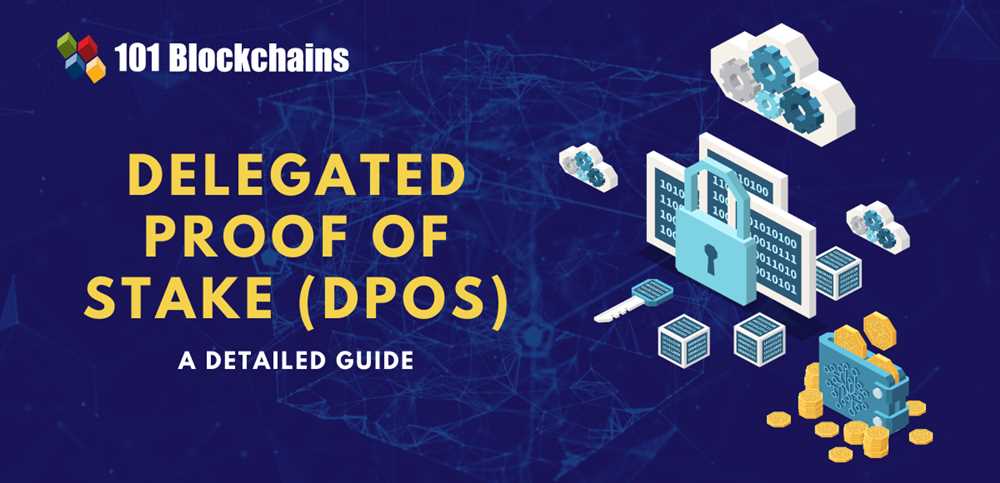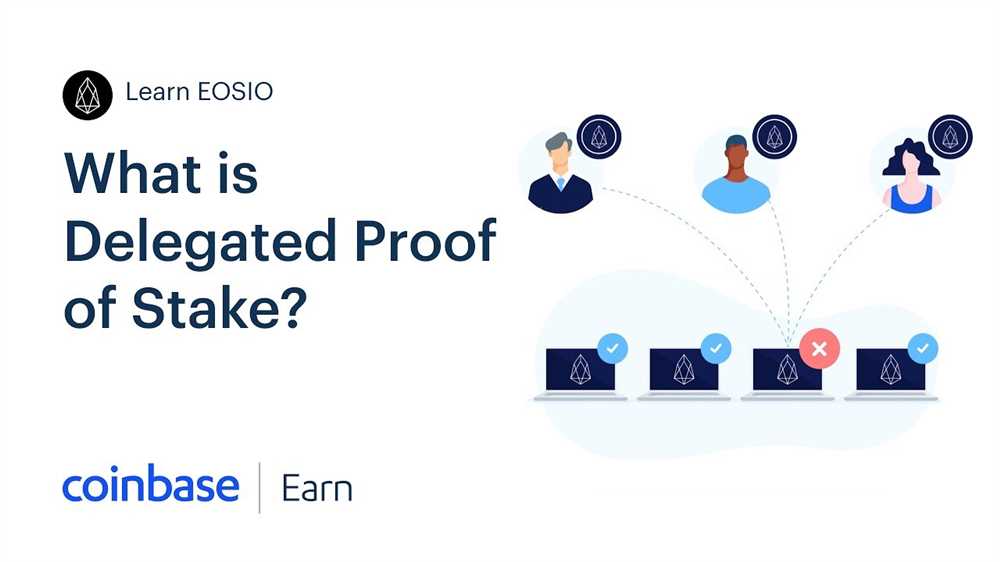
In the world of cryptocurrency, various consensus algorithms have been developed to ensure the security and integrity of transactions. One such algorithm is the Delegated Proof-of-Stake (DPoS), which is employed by the popular decentralized exchange platform 1inch DEX.
The DPoS algorithm, unlike traditional Proof-of-Work (PoW) or Proof-of-Stake (PoS) algorithms, allows for a more efficient and scalable network. In DPoS, instead of all network participants competing to solve complex mathematical problems, a smaller number of delegates are elected to validate transactions and maintain the network.
These elected delegates are chosen by the token holders in a voting process, where voting power is usually proportional to the stake held by each participant. The elected delegates then take turns to produce blocks and secure the network. This approach ensures that the network remains decentralized, while also enabling faster transaction speeds and lower fees compared to PoW or PoS systems.
1inch DEX leverages the DPoS consensus algorithm to provide users with a seamless and efficient trading experience. By utilizing this algorithm, 1inch DEX is able to achieve fast and secure transactions, making it an attractive option for both casual and professional traders in the cryptocurrency market.
What is Delegated Proof-of-Stake?

Delegated Proof-of-Stake (DPoS) is a consensus algorithm used in blockchain networks to achieve consensus on transaction validity and maintain the security of the network. It is a variation of the Proof-of-Stake (PoS) algorithm that aims to improve scalability and efficiency.
In a DPoS system, token holders elect a group of “delegates” who are responsible for validating transactions and creating new blocks. These delegates are chosen based on their stake in the network, with token holders voting for their preferred delegates. The number of delegates can vary depending on the network, but it is typically a small number, which helps in maintaining decentralization and reducing resource requirements.
Once the delegates are elected, they take turns producing blocks in a predetermined order. The order is often determined dynamically based on factors such as the number of tokens each delegate holds or their past performance. This rotation of block production ensures that no single delegate has complete control over the network, preventing centralization and potential malicious behavior.
DPoS systems also introduce the concept of “delegated voting power.” Token holders have the option to delegate their voting rights to a trusted delegate of their choice. By delegating their voting power, token holders can participate in the network’s governance process without having to actively vote on every decision, improving overall participation and engagement.
One key advantage of DPoS over other consensus algorithms is its scalability. By designating a small number of delegates, DPoS networks can achieve high transaction throughput and faster block confirmation times compared to other consensus mechanisms such as Proof-of-Work (PoW). Additionally, DPoS allows for more efficient use of network resources, as block validation and creation are delegated to a selected group of participants.
While DPoS provides scalability and efficiency benefits, it also introduces certain trade-offs. Critics argue that DPoS may be more susceptible to centralization, as the election of delegates and concentration of power can potentially lead to collusion or monopolistic behavior. Additionally, DPoS may require a high level of trust in the elected delegates, as they have the power to validate transactions and create blocks on behalf of the network.
Overall, Delegated Proof-of-Stake is a consensus algorithm that offers scalability, efficiency, and governance benefits. It is widely used in various blockchain networks, including the 1inch decentralized exchange (DEX), to enable reliable and secure transaction processing.
Exploring Delegated Proof-of-Stake in 1inch DEX

Delegated Proof-of-Stake (DPoS) is a consensus algorithm used in blockchain networks to achieve decentralization and secure transactions. In this article, we will explore how DPoS is implemented in the 1inch Decentralized Exchange (DEX).
1inch DEX is a popular decentralized exchange platform that allows users to trade cryptocurrencies directly from their wallets. It uses a multi-chain approach, meaning it operates on different blockchain networks such as Ethereum, Binance Smart Chain, and others. To ensure the security and efficiency of transactions, 1inch DEX utilizes the DPoS consensus algorithm.
The DPoS algorithm works by selecting a small number of trusted individuals, known as delegates or validators, to validate transactions and produce blocks. These delegates are elected by the community through a voting process, where token holders can vote for their preferred candidates.
Once the delegates are elected, they are responsible for confirming transactions and adding them to the blockchain. This process is done in a decentralized manner, where each delegate takes turns to produce blocks based on a predefined order. The rotation of delegates ensures that no single entity has complete control over the network, promoting fairness and security.
In the context of 1inch DEX, the DPoS algorithm plays a crucial role in maintaining the integrity and transparency of transactions. The elected delegates are responsible for validating trades and ensuring that they are executed correctly. They also play a role in resolving any disputes or issues that may arise during the trading process.
Furthermore, the DPoS algorithm incentivizes token holders to actively participate in the governance of the 1inch DEX ecosystem. By voting for delegates, token holders can influence the direction and decision-making process of the platform. This democratic approach promotes community involvement and ensures that the platform is governed in a fair and decentralized manner.
In conclusion, the implementation of the Delegated Proof-of-Stake consensus algorithm in 1inch DEX is a key factor in ensuring the security and efficiency of transactions. By electing delegates through a voting process, the platform maintains decentralization and allows token holders to actively participate in the governance of the ecosystem.
Question-answer:
What is the Delegated Proof-of-Stake (DPoS) consensus algorithm?
The Delegated Proof-of-Stake (DPoS) consensus algorithm is a variation of the Proof-of-Stake (PoS) consensus algorithm. It aims to provide a more efficient and scalable approach to blockchain consensus by allowing token holders to delegate their voting power to elected representatives, known as delegates or witnesses. These delegates are responsible for validating transactions and securing the network. DPoS is widely used in various blockchain platforms, including 1inch DEX.
How does the Delegated Proof-of-Stake algorithm work in 1inch DEX?
In 1inch DEX, the Delegated Proof-of-Stake (DPoS) algorithm works by allowing users to delegate their voting power to a set of validators. These validators, also known as “liquidity mining leaders,” are responsible for processing transactions, maintaining the blockchain, and making governance decisions. The voting power delegation allows token holders to participate in the decision-making process without the need for extensive computational resources. The DPoS algorithm ensures fast block confirmation times and high transaction throughput in the 1inch DEX ecosystem.
What are the advantages of using the Delegated Proof-of-Stake algorithm in 1inch DEX?
The Delegated Proof-of-Stake (DPoS) algorithm offers several advantages in the context of 1inch DEX. Firstly, it allows for fast block confirmation times and high transaction throughput, making the DEX more efficient and scalable. Secondly, the voting power delegation mechanism enables token holders to participate in the decision-making process, ensuring a more democratic and decentralized governance system. Finally, DPoS reduces the barrier to entry for validators, as extensive computational resources are not necessary, promoting wider participation in securing the network.